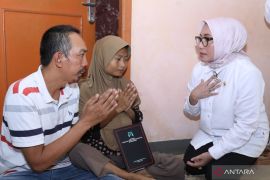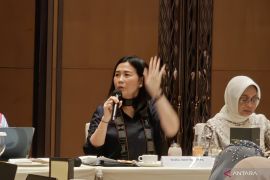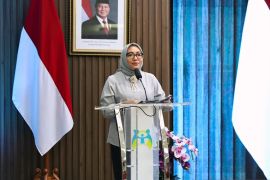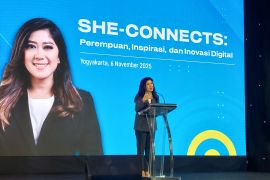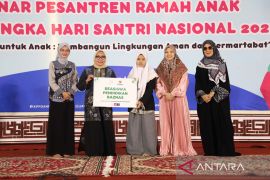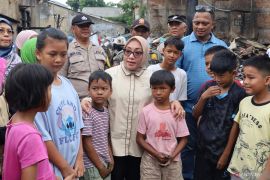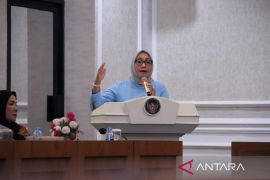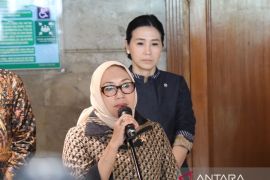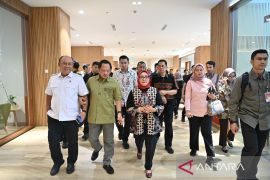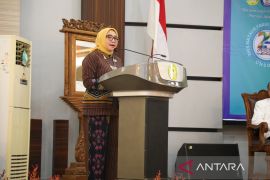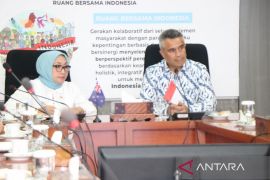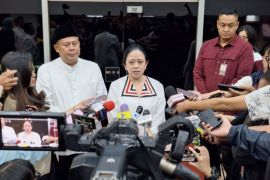The Saudi Vision 2030 is based on the sources of strength and immense capabilities of our nation, and one of these sources of strength is the Saudi women.
Women constitute 49 percent of the Saudi society, thereby making them an important component of the Kingdom's wealth.
The Kingdom of Saudi Arabia has made significant progress in a short period of time, taking steady steps to empower women and increase their opportunities and fields of work.
These include employing women in private sector departments and branches; establishing guidelines for "women's employment" in the labor system; expanding the capacity for technical, vocational, and health programs; implementing electronic recruitment programs for women; expanding the employment of Saudi women as part of the Saudi employment strategy; and increasing women's participation in ministries, government, and private sectors, and industrial cities.
The other steps taken are appointing women to the Shura Council, with no less than 20 percent of its members, and mandating women to obtain national identification, as well as the participation of women in municipal council elections as candidates and voters.
The Saudi Vision 2030 came to outline a starting plan for women to benefit from the aspirations of all vision programs, just like men.
It allocates targets to empower women through three vision programs: the National Transformation Program, the Quality of Life Program, and the National Industry Development and Logistics Program.
The National Transformation Program supports increasing women's participation in the labor market, increasing their representation in leadership positions, fostering a culture of work, and developing women's skills.
This is achieved through a range of initiatives, such as promoting flexible and remote work, promoting women's localization, providing childcare services for working women, leadership training and guidance for female talents, supporting and facilitating women's mobility, providing parallel training to meet requirements of the labor market, improving recruitment mechanisms, empowering women in the civil service, and enhancing their leadership role.
As for the Quality of Life Program, it has presented several initiatives that encourage women to work in line with the best countries in terms of the quality of life and achieving full participation of women in society. This includes enacting necessary legislation to integrate women in all sectors and increasing awareness of the importance of their participation in the labor market.
Similarly, the National Industry Development and Logistics Program has contributed to involving women in fields, such as science, technology, engineering, and mathematics, and providing high-skilled jobs that can attract national talent.
In terms of legislation, reforms, and executive directives, the vision has made it possible for women to overcome obstacles in their path towards full participation in key developmental areas, such as health, education, society, economy, and representation in leadership positions.
In the field of health, for instance, licenses have been issued for Saudi female healthcare professionals to practice in pharmacies located in commercial complexes. Women's health programs have been added to the healthcare system, a national policy for women's health has been established, and families are allowed entry into sports stadiums.
Moreover, the launch of the first women's football league aims to enhance the inclusion of women in sports and diversify their activities within the sector.
In the field of education, the directives stipulated the establishment of agencies in universities under the name of the University Agency for Female Students' Affairs.
This is in addition to implementing the physical education program in girls' schools and introducing a Bachelor's degree in "Sports and Physical Activity" for female students. It also involves establishing a College of Engineering at Princess Nourah Bint Abdulrahman University and opening departments for female students in existing engineering colleges at universities.
The university introduced 21 specialized programs for both bachelor's and diploma degrees, including artificial intelligence, data science and analysis, cybersecurity, multimedia design diploma, electronic engineering technician diploma, and telecommunications engineering diploma.
This step was taken to address the low participation of women in fields related to science, technology, engineering, and mathematics.
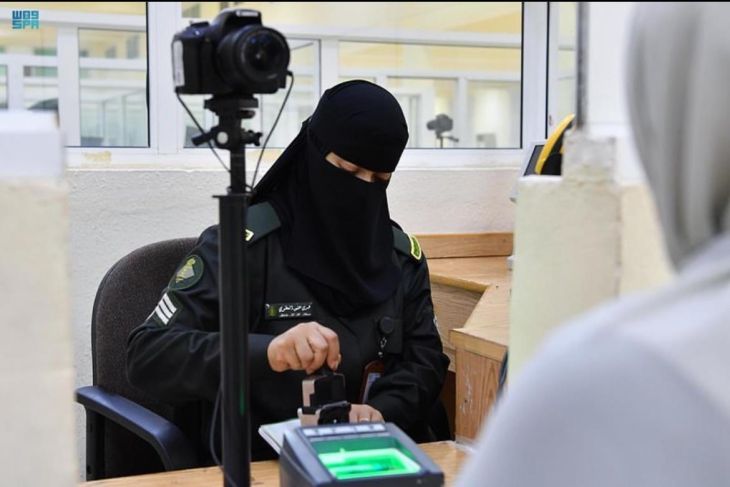
Socially, the legislation included the organization of the Family Affairs Council and the formation of a "Women's Committee" as one of the technical committees of the council.
It also involved studying optimal procedures to address issues related to guardianship and custody, regulating the alimony fund for divorced women and children to ensure timely payment without delay, establishing a specialized center to receive reports of domestic violence, providing legal assistance to women and children in cases of abuse, implementing a system to combat harassment, amending the system to combat harassment to include publishing penalties in newspapers at the expense of the convicted individual, regulating the marriage of minors, and making the head of the family the father or mother for minor children.
Both spouses were allowed to report marriage, divorce, return, divorce revocation, and separation. Women were granted the right to request the family record from the Civil Status Administration and the right to report deaths that were earlier limited to adult males aged 18 and above.
Women were also allowed to report births, similar to men, and the implementation of the judicial ruling to return to the husband's home, or what was earlier called "the house of obedience," was abolished.
Here, I would like to highlight the most prominent leadership appointments that Saudi women have received in various political, economic, educational, health, and social fields.
It is not possible for me to mention all of them here, but I will mention some of them. Most recently, Her Highness Princess Haifa bint Mohammed bin Saud bin Khalid was appointed as Deputy Minister of Tourism with the rank of Excellency.
Additionally, Shihana Al-Azzaz was appointed as Deputy Secretary-General of the Council of Ministers with the rank of Excellency.
In addition to these appointments, it is worth mentioning the pioneering Saudi women, who opened the doors for women to enter the diplomatic corps in 2019. Her Royal Highness Princess Reema bint Bandar Al Saud, the Kingdom's Ambassador to the United States, led the way.
This was followed by the appointment of Dr Amal al-Moallimi as Saudi Ambassador to Norway and Enass Alshahwan as Saudi Ambassador to Sweden, among many others, whom all I cannot mention here.
Finally, I would like to express my gratitude, appreciation, and thanks to our wise leadership in the Kingdom of Saudi Arabia for their commitment and determination to continue to empower Saudi women.
This is based on their belief that women are one of the fundamental pillars of the human capital that they possess and that they will contribute to achieving progress, prosperity, and development.
*) Halah Fuad Nouran is International Strategic Partnership Officer at the Saudi Press Agency (SPA).
The views and opinions expressed on this page are those of the author and do not necessarily reflect the official policy or position of the ANTARA News Agency.
Copyright © ANTARA 2023

